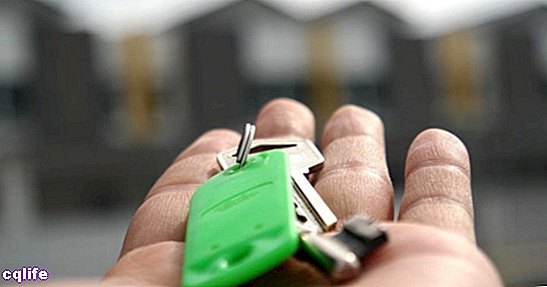We explain what property law is and what its characteristics are. Also, examples of the application of this right.

What is property law?
The right to property or property domain is the direct and immediate legal capacity that a person with respect to a specific object or property, which allows you to dispose of them freely within the framework established by the law.
In other words, it is about the power that legal subjects have over objects and properties to do with them whatever they want, without violating the law or causing harm to third parties.
The property right applies to all objects susceptible of appropriation, which is determined by three main characteristics:
- That they are useful, because if they were not, their appropriation would not make sense;
- That they are limited, because if they were infinite, it would not be necessary to appropriate them either;
- That they can be occupied or possessed, otherwise there would be no way to act the power of property rights over them.
Similarly, it is considered that the full property right gives the possessor three powers over the object or property in question, which are the use (ius utendi), enjoyment (ius fruendi) and enjoy (ius abutendi), a distinction that was born in the Roman Law during medieval times:
- Ius utendi. The owner has the right to use the thing as he pleases, according to his interests and the social function he has, as long as he does not violate the law or cause injury to other owners.
- Ius fruendi. The owner has the right to take advantage of the thing, of the fruits that it generates directly or indirectly, or that remains after its use.
- Ius abutendi. The owner has the right to dispose of the thing as he wishes, either to destroy it, alienate it, abandon it, rent it, etc., as long as it does not go against his social function and does not violate any third party rights or any legal ordinance.
Property rights features
Property rights are considered to exist in the following ways:
- Moral. Since appropriation is reflexive and not instinctive.
- Perpetual. Since it will last until the good exists.
- Exclusive. Since there can only be one owner of the thing at a time.
- Limited. Since it can be restricted by the common benefit, by the need of others or by law.
- Perfect. Since the owner can by him defend his property of the thing even through the proportionate exercise of force.
Examples of property law

Property rights can be verified in cases such as the purchase or sale of a house, since there will necessarily be a sole and exclusive owner who puts it up for sale and a new sole and exclusive owner who agrees to pay for it. Once the transaction is finished, the property will have been transferred from one subject to another, but the house will never have ceased to belong to someone.
Another example would be a farm in which there are numerous fruit trees. These are, along with everything planted on the land, the exclusive property of the owner, as well as the fruits that these trees produce, and which the owner may dispose of as he pleases: selling them, giving them away or leaving them to rot.
Property examples
There are different ways to classify a property according to what is established by this branch of the right, such as:
- Classification by subject. You can talk about private property (when it belongs to an individual), public (when it belongs to the Condition), individual (if it belongs to a single owner), private collective (when it belongs to a community private) or public collective (when it belongs to everyone and is administered by a public entity or body).
- For example: A park is collective public property, while a hacienda is individual private property, and the assets of a business private are private collective goods.
- Classification by nature. There are movable properties (they can move from place to place), real estate (they cannot be transported without damaging them), corporal (which can be perceived by the senses) and incorporeal (which is constituted by mere rights, is abstract).
- For example: A car is a personal property, a house is a real property, both have bodily property. While the owner of a loan has an intangible property.
